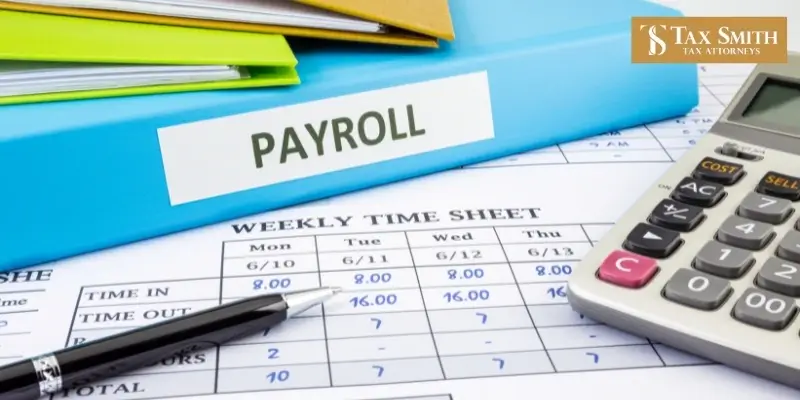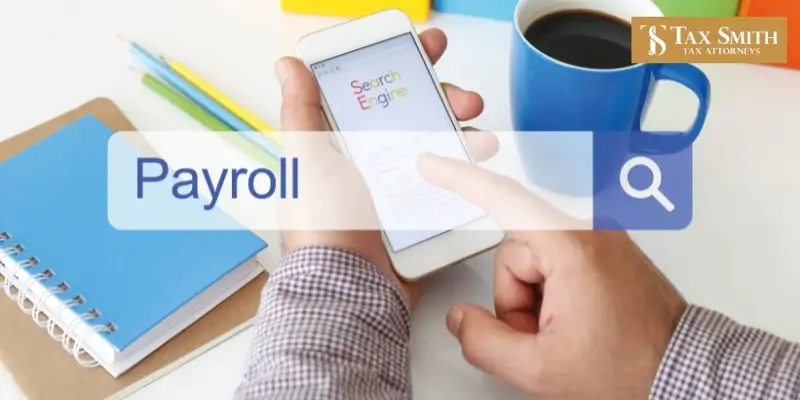Business owners and employers have numerous responsibilities, including the payment of payroll taxes. These include taxes like the Federal Insurance Contributions Act (FICA) taxes, state and federal unemployment taxes, and corporate income taxes. Failing to pay these deposits at the right pay period and pay them accurately can lead to penalties. What are the penalties for non-payment of payroll taxes? They can range from civil penalties to criminal charges.
The Internal Revenue Service (IRS) takes non-payment seriously. Payroll tax laws can be complex and challenging for employers to navigate, so it is essential that businesses take proactive steps to plan and prepare for payroll taxes and compliance. This could include working with a Jacksonville payroll tax attorney to understand tax obligations fully.
In fiscal year 2024, the IRS collected over $565 billion in business income taxes, and $17.9 billion of that was from Florida businesses. If the IRS does not receive required payments and deposits, it can hold responsible parties accountable.

Potential Consequences for Unpaid Payroll Taxes
The IRS or the Florida Department of Revenue can take action against businesses and employers for the failure to deposit payroll taxes. You could face issues such as:
- Monetary fines
- Interest on those fines and unpaid taxes
- Collection actions
- Criminal charges
- Criminal fines and imprisonment
The IRS assessed over 1.17 million penalties associated with federal tax deposits for employment taxes in FY 2024, which totaled almost $19 billion.
Failure to Deposit Penalty
This penalty applies when employers fail to make their payroll deposits on time, for the correct amount, or using the correct method. The penalty is a percentage of the debt you owe the IRS, set on the following timeline:
- For deposits one to five days late, a 2% penalty
- For deposits six to 15 days late, a 5% penalty
- For deposits more than 15 days, a 10% penalty
- When 10 days have passed since the first notice, or you have received a notice of immediate payment, a 15% penalty
The penalties and your unpaid tax will also accrue interest over time if you don’t address the liability.
Trust Fund Recovery Penalty
The trust fund recovery penalty (TFRP) is a penalty that applies to an employer who is responsible for withholding the employee’s half of FICA taxes and paying that to the IRS but fails to do so. The employer may fail to collect those taxes or fail to pay them.
Any responsible person may be liable. For a TFRP, a responsible person can be any person or group that has the ability and duty to collect and pay trust fund taxes. The IRS may go after any person it believes is responsible for the failure to pay these taxes and assess the penalty on that party or even hold them criminally liable.
Can You Remove or Reduce a Penalty?
You may be able to reduce or clear a penalty if you can prove there was reasonable cause for the failure to deposit payroll taxes. For a failure to file or failure to pay, a reasonable cause may include:
- A natural disaster or fire
- A civil disturbance
- The inability to get the needed record
- Issues in the system that prevented timely payment
Criminal Consequences of Failure to Deposit
When you make genuine errors or are prevented by reasonable circumstances from paying pay period deposits on time, the IRS will generally assess and collect a penalty. However, if the agency suspects you are deliberately and willfully failing to pay your taxes and deposits, you could face criminal charges.
In the United States, the willful failure to collect or pay taxes is a felony. The penalties if you are convicted include up to $10,000 in fines, as well as the costs of prosecution and/or imprisonment for up to five years.
Why Is It Important to Hire a Payroll Tax Lawyer?
It is useful to hire a payroll tax lawyer because these professionals can help you remain on top of your tax obligations. This includes determining what your pay periods are, the amount of your deposits, and other responsibilities. By working with an experienced attorney, you could remain more on top of your IRS tax payments and avoid penalties and more serious consequences.

FAQs About Penalties for Non-Payment of Payroll Taxes
What Are the Consequences of Not Paying Payroll Taxes?
There are several consequences for not paying payroll taxes, primarily the failure to deposit. This penalty is a percentage of the tax you owe, and this percentage increases depending on how long you have gone without paying. It can range from a 2% to a 15% penalty.
If the IRS believes you deliberately did not pay your taxes, you could face criminal charges, and a conviction can result in thousands of dollars in fines and potentially years in prison.
Who Is Liable for Unpaid Payroll Taxes?
The IRS may hold any individual considered a responsible person liable for unpaid payroll taxes. This may include a principal officer, a grantor, an owner, an executor, a general partner, or a fiduciary. The responsible party depends on the entity type and covers any person who owns or has control over a business and its finances or assets. Businesses and entities of all types must have an individual responsible party unless they are a governmental entity.
What Happens if I Forgot to File a 941?
If you forget to file a Form 941, you can face penalties for failure to file, failure to pay, and/or failure to deposit. Form 941 is used to report FICA taxes; both the employer half and the employee half are withheld from paychecks. These penalties are generally a percentage of the total amount you owe the IRS, which may continue to be assessed for several months. It is important to file quickly if you realize you have forgotten to file.
What Is the Statute of Limitations on Unpaid Payroll Taxes?
The statute of limitations on unpaid back taxes is usually ten years from the date the penalty was assessed, and penalties can be assessed within three years from when the return or other filing was due. However, this time limit may not apply to unpaid payroll taxes. Additionally, both of these time periods can be extended in specific situations, such as if you are living outside the U.S. or you did not voluntarily file the missed tax filing.
Contact TaxSmith, LLC
You can save yourself significant stress and uncertainty by working with experienced payroll tax lawyers. Contact TaxSmith, LLC today and learn how we can help you address existing tax issues and prevent future penalties.








